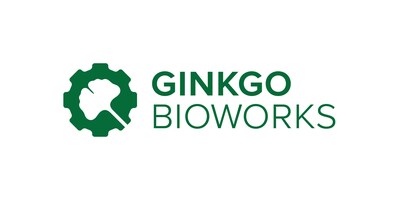Cambrium and Ginkgo Bioworks Complete Successful Collaboration on Data-Driven Cell Factory Engineering
Rhea-AI Summary
Cambrium and Ginkgo Bioworks have successfully completed a partnership focused on optimizing the design of microbes for protein production using generative AI. This collaboration utilized Cambrium's Cloud Protein AI platform alongside Ginkgo's ultra high-throughput screening technology, significantly enhancing protein production processes. Key achievements include the generation of valuable data for strain optimization, identification of new engineering targets, and development of efficient biomanufacturing methods. The project received co-funding from Swiss and German governmental bodies as part of the Eurostars initiative, highlighting its innovative approach to data-driven metabolic engineering.
Positive
- Successful completion of collaboration enhancing protein production capabilities.
- Development of efficient and cost-effective biomanufacturing methods.
- Identification of novel cell lines for enhanced high-value protein production.
- Achievement of significant increases in performance metrics with limited genome edits.
Negative
- None.
News Market Reaction 1 Alert
On the day this news was published, DNA gained 2.46%, reflecting a moderate positive market reaction.
Data tracked by StockTitan Argus on the day of publication.
Almost 2 years ago, Cambrium and FGen, a subsidiary of Ginkgo now known as Ginkgo's Encapsulation and Screening team, announced a partnership to push the boundaries of data-driven metabolic engineering. Combining FGen's expertise in microbial strain development and ultra high-throughput screening (uHTS) techniques with Cambrium's Cloud Protein AI platform, the collaboration screened a vast quantity of cells to optimize their protein production.
The collaboration allowed scientists to map experimental data to in silico models, generating strain optimization insights and enabling faster convergence towards high performance protein production. It also enabled the isolation of novel cell lines which produced enhanced levels of high-value proteins. Through the collaboration, the teams were able to identify non-obvious engineering targets to significantly improve strain performance. In particular, the results show that, even with limited genome edits, it is possible to achieve significant increases across critical performance metrics in iterative fermentation cycles. With these advances, the partnership developed more efficient and cost-effective biomanufacturing methods for both companies and their partners.
"Partnering with FGen, and then Ginkgo, was a natural move to generate an immense amount of data to feed our AI algorithms," said Dr.
"Using our ultra high-throughput screening (uHTS) capabilities and nanoliter-reactor technology, we were able to generate a vast quantity of data linked to specific phenotypes to feed the machine learning algorithms," said Dr.
The project was co-funded by the Swiss State Secretariat for Education, Research, and Innovation and the
About Cambrium
About
Forward-Looking Statements of
This press release contains certain forward-looking statements within the meaning of the federal securities laws, including statements regarding the capabilities and potential success of the partnership and Ginkgo's cell programming platform. These forward-looking statements generally are identified by the words "believe," "can," "project," "potential," "expect," "anticipate," "estimate," "intend," "strategy," "future," "opportunity," "plan," "may," "should," "will," "would," "will be," "will continue," "will likely result," and similar expressions. Forward-looking statements are predictions, projections and other statements about future events that are based on current expectations and assumptions and, as a result, are subject to risks and uncertainties. Many factors could cause actual future events to differ materially from the forward-looking statements in this press release, including but not limited to: (i) volatility in the price of Ginkgo's securities due to a variety of factors, including changes in the competitive and highly regulated industries in which Ginkgo operates and plans to operate, variations in performance across competitors, and changes in laws and regulations affecting Ginkgo's business, (ii) the ability to implement business plans, forecasts, and other expectations, and to identify and realize additional business opportunities, (iii) the risk of downturns in demand for products using synthetic biology, (iv) the unpredictability of the duration of the COVID-19 pandemic and the demand for COVID-19 testing and the commercial viability of our COVID-19 testing business, (v) changes to the biosecurity industry, including due to advancements in technology, emerging competition and evolution in industry demands, standards and regulations, (vi) our ability to realize the expected benefits of merger and acquisition transactions, (vii) the outcome of any legal proceedings against Ginkgo, including as a result of recent acquisitions, (viii) our ability to realize the expected benefits from and the success of our Foundry platform programs, (ix) our ability to successfully develop engineered cells, bioprocesses, data packages or other deliverables, and (x) the product development or commercialization success of our customers. The foregoing list of factors is not exhaustive. You should carefully consider the foregoing factors and the other risks and uncertainties described in the "Risk Factors" section of Ginkgo's annual report on Form 10-K filed with the
GINKGO BIOWORKS INVESTOR CONTACT:
investors@ginkgobioworks.com
GINKGO BIOWORKS MEDIA CONTACT:
press@ginkgobioworks.com
CAMBRIUM CONTACT
natassja.dosanjos@cambrium.bio
![]() View original content to download multimedia:https://www.prnewswire.com/news-releases/cambrium-and-ginkgo-bioworks-complete-successful-collaboration-on-data-driven-cell-factory-engineering-301799663.html
View original content to download multimedia:https://www.prnewswire.com/news-releases/cambrium-and-ginkgo-bioworks-complete-successful-collaboration-on-data-driven-cell-factory-engineering-301799663.html
SOURCE Cambrium










